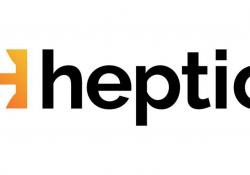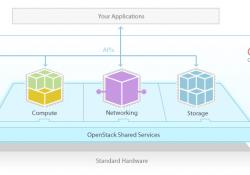Why the Failure to Conquer the Desktop Was Great for GNU/Linux

AI: open source's next big win.
Canonical recently launched Ubuntu 18.04 LTS. It's an important release. In part, that's because Canonical will support it for five years, making it one of the relatively rare LTS products in Ubuntu's history. Ubuntu 18.04 also marks a high-profile return to GNOME as the default desktop, after a few years of controversial experimentation with Unity. The result is regarded by many as the best desktop Ubuntu so far (that's my view too, for what it's worth). And yet, the emphasis at launch lay elsewhere. Mark Shuttleworth, CEO of Canonical and founder of Ubuntu, said:
Multi-cloud operations are the new normal. Boot-time and performance-optimised images of Ubuntu 18.04 LTS on every major public cloud make it the fastest and most efficient OS for cloud computing, especially for storage and compute-intensive tasks like machine learning.
The bulk of the official 18.04 LTS announcement is about Ubuntu's cloud computing features. On the main web site, Ubuntu claims to be "The standard OS for cloud computing", citing (slightly old) research that shows "70% of public cloud workloads and 54% of OpenStack clouds" use it. Since Canonical is a privately held company, it doesn't publish a detailed breakdown of its operations, just a basic summary. That means it's hard to tell just how successful the cloud computing strategy is proving. But, the fact that Shuttleworth is now openly talking about an IPO—not something to be undertaken lightly—suggests that there is enough good news to convince investors to throw plenty of money at Canonical when the prospectus spells out how the business is doing.
It would be idle to pretend that the apparent success of Ubuntu's cloud strategy was all part of a grand plan from the beginning. When I interviewed Shuttleworth in 2008, he was still saying his number one challenge was "how to make the Linux desktop something that you want to keep on your computer". In truth, Canonical was forced to try something else when it became clear that GNU/Linux was never going to take off on the desktop, despite pious hopes by many of us in the Open Source community that "very soon" it would be the Year of the GNU/Linux Desktop. What little demand there was for open source on PCs was probably mopped up by Red Hat, which had been one of the very first companies to serve the sector. Good as Ubuntu was, it didn't offer enough to break Microsoft's stranglehold on the mainstream desktop.
And so Canonical has moved ever deeper into the cloud. Although that change of emphasis may have been born of necessity, when its other products failed to catch on in a big way, the Canonical management soon turned it into a virtue. By dint of spotting and adopting rising open-source stars in the cloud computing world—projects like OpenStack and more recently, Kubernetes—Canonical has positioned Ubuntu as one of the most popular operating systems for cloud deployment, a major if little known achievement outside specialist circles.
Validation for putting the cloud at the heart of its business has just come from an unusual quarter. Microsoft's CEO Satya Nadella recently wrote a letter to all his employees, titled "Embracing our future: Intelligent Cloud and Intelligent Edge". Like Canonical, but somewhat belatedly, Microsoft too is betting the company on its cloud offering—in this case, Microsoft Azure. That has an interesting implication for Windows, as Nadella explained:
Azure: Jason Zander is being promoted to executive vice president, Azure, and will lead this team. The Windows platform team led by Harv Bhela, Henry Sanders and Michael Fortin will join Jason's team. Windows platform is already a core part of Azure across both the cloud and edge, and this shift will enable us to accelerate our efforts to build a unified distributed computing infrastructure and application model.
The main Windows technology is now simply one aspect of Microsoft's larger cloud computing offering Azure. Meanwhile, the upper layers of Windows are being shunted off to become a minor part of a new team called Experiences & Devices. In dismantling the Windows division, Nadella is recognizing reality. The original plan was to have one billion devices running Windows 10 in 2018. There's not much hope of that. At the end of 2017, it had only just hit 600 million devices worldwide. Although Windows is not dying, it is clearly running out of steam, just like the PC platform itself.
Nadella rightly sees future growth for the company coming from elsewhere. But, now it's clearly Microsoft that is "chasing tail lights" as the first Halloween Document famously claimed was the case for open source. Having failed in the mobile space, Microsoft is trying to catch up with companies like Canonical and Red Hat in cloud computing. That's a tall order, since open source is firmly established as the de facto standard for clouds, and there's nothing that Microsoft really can offer as a unique selling point to dislodge it—compatibility with Windows doesn't cut it anymore.
The situation for the other growth area identified by Nadella—that is, AI—is likely to be the same as for cloud computing. Although it is true that AI is still a young market, without clear leaders, it seems reasonable to assume that open source will take over here just as it did in another market with which it shares many characteristics: supercomputing. Today, the top 500 most powerful computers in the world all run some variety of Linux. The reasons are the obvious ones: complete customisability, established reliability, low cost and the fact that everyone is already using open source for everything else—except on the by-now fading desktop.
Ubuntu 18.04 aims to be ready for this opportunity. Canonical says the new version is optimized for AI, thanks to an open-source project called Kubeflow: "A Composable, Portable, Scalable [Machine Learning] Stack Built for Kubernetes". David Aronchick, Product Manager, Cloud AI at Google, is quoted by Canonical as saying:
With the release of Ubuntu 18.04 LTS and Canonical's collaborations to the Kubeflow project, Canonical has provided both a familiar and highly performant operating system that works everywhere. Whether on-premises or in the cloud, software engineers and data scientists can use tools they are already familiar with, such as Ubuntu, Kubernetes and Kubeflow, and greatly accelerate their ability to deliver value for their customers.
Discounting the marketing hyperbole typical of such statements made to support the launch of new products, Aronchick makes two important points. First, that Canonical's approach is highly portable: the models and inference engines that are generated using input data running on Ubuntu-based research and development systems can be deployed to devices running Ubuntu at the edge of the network, "creating a perfect pipeline for machine learning from workstation, to rack, to cloud and device". Secondly, thanks to Canonical's long investment in cloud computing tools, it is relatively easy to move into the currently fashionable area of AI without needing to acquire a huge range of new technical skills.
Ubuntu seems well placed to establish itself as a major player in AI, which many see as not just the next big application, but as an entirely new era for computing. Canonical laid the foundations for that possibility when it decided to shift its emphasis to the cloud a few years back. And that happened thanks to the perennial failure of GNU/Linux to establish itself on the desktop, which may well turn out in the long run to be one of the best things ever to have happened to open source.










0afc.png?itok=ntXUVnoV)

